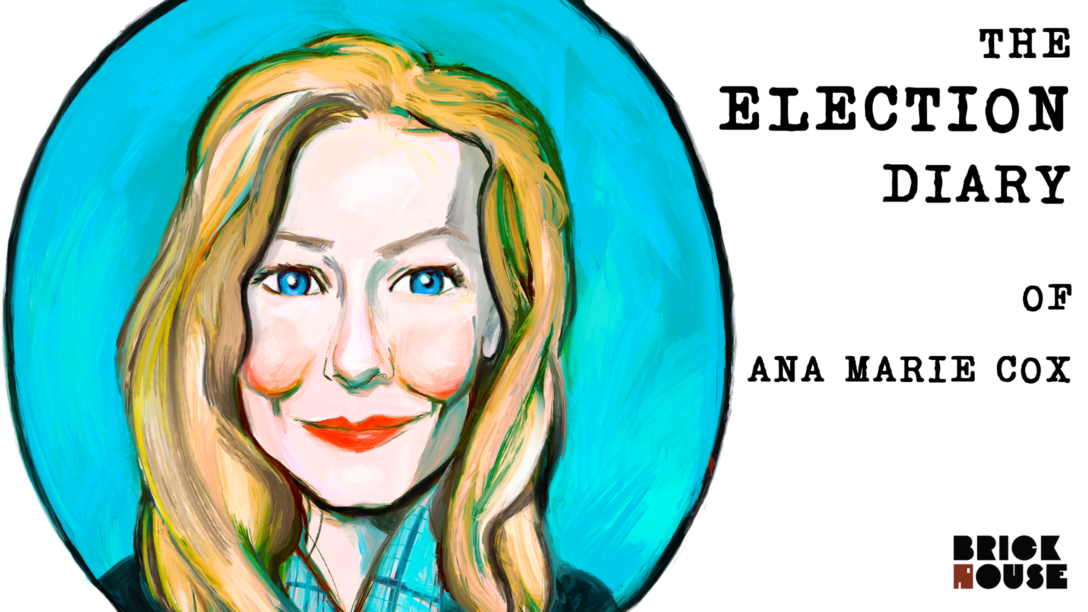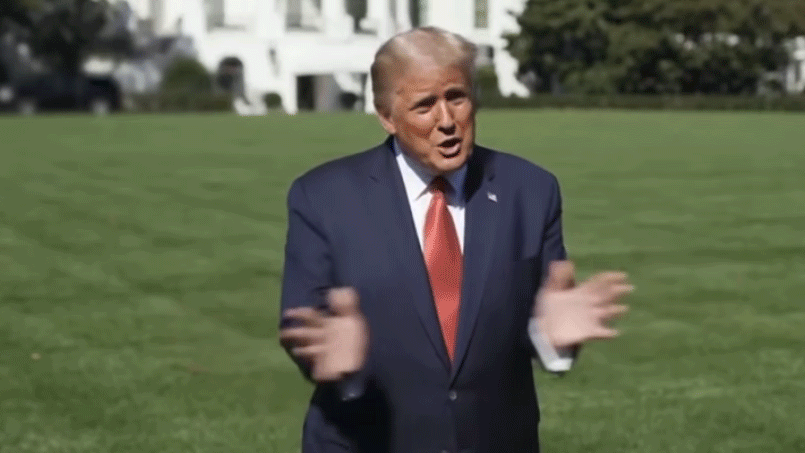Leave it to Trump to force us to think of the coronavirus as a sexually transmitted disease.
“I’ll walk into that audience, I’ll walk in there, kiss everyone in that audience. I’ll kiss the guys and the beautiful women.”
That’s what he told the mostly unmasked crowd gathered in Sanford, Florida — the first stop in what threatens to be a once-a-day super-spreading tour of the country.
And if that wasn’t enough to remind you—and really, we should be reminded every day—that our president is a serial sexual assailant who has yet to be held accountable for any of his crimes, he added a line worthy of 90s-era Harvey Weinstein: “They say I’m immune. I feel so powerful.”
Sadly for Trump, escaping responsibility for his many violations (of laws, of women, of decency) is the only respect in which he has so far proved immune, or powerful.
According to New York magazine, President Trump’s brush with the coronavirus was (as I suspected!) far more serious than the White House let on. The president pondered, or at least entertained the thought of, his own mortality, telling a confidant: “I could be one of the diers.”
Empathetic language, “people first” language, tries to eliminate jarring constructions like Trump’s. You may think adjusting your conversations to replace “the blind” with “people who are blind” and “wheelchair-bound” with “wheelchair user” is superficial, a matter of pleasing the PC police; the queasy cruelty you hear in “the diers”—the sole fate we all share, incidentally, since taxes are optional for some—illustrates quite nicely how defining people by their experience can end.
Trump is always being described as a “germaphobe” (or, as we might say, “a person afraid of germs”). He has a “fear of being sick.” But there’s a mountain of evidence that tells us Trump is not afraid of getting sick; he is afraid of people who are sick, such as “the diers.” He is only afraid of illness insofar as it would make him one of those who fail to be well: A prospective dier. He may be afraid of the perception of illness, not physical weakness per se. If he were genuinely afraid of dying, he might, I don’t know, shift away from his all-trans-fat diet, or develop an exercise regimen that pumps government money into some other aspect of his business besides golf courses (surely there’s a a set of gold-plated, Trump-branded weights for the White House to buy).
If he were genuinely afraid of dying, maybe he would have done more to limit the spread of the coronavirus to begin with.
It’s easy to forget how all-consumingly our world is defined by Covid-19. Our ability to adapt to trauma, moment by moment, is one of the brain’s gifts, though it comes with a hidden cost. The gift is that we can function somewhat normally; the cost is that we forget that we are still undergoing trauma. And if we allow the trauma to be fuzzed over or blotted out entirely, we may become ensnared by denial, unable to recognize the escape route when it is offered.
This president is hoping that Americans, so beaten down, will refuse to run through the open gate. It’s his only hope for re-election. Well, that, and stealing the whole thing. The lines we are seeing at polling places look a lot like a people racing through the exits, together.
Trump has been unable to alight on an actual closing argument. His media sycophants toss him slow-moving softballs about his plans for a second term, only to see them engulfed in the sludge of Trump’s resentment. (In response to Sean Hannity: “I never did this before, never slept over in Washington. I was in Washington maybe 17 times and all of a sudden I’m the President of the United States.”). He can’t breathe outside the oxygenated bubble of the media spotlight, so he has stepped on every single piece of news that might be spun to bring doubtful Republicans back into the fold (whether it’s Mike Pence’s non-disastrous debate appearance, or the Amy Coney Barrett hearings).
Trump is desperate to wrap his victims up in the tight embrace of his own delusions, at these bonkers rallies of performative mask-removal, where the very air is suffused with death.
“Don’t be afraid of Covid. Don’t let it dominate your life,” he said, as if every senior citizen in this country could be helicoptered to Walter Reed to receive remdesivir, dexamethasone and experimental antibody cocktails from a phalanx of white-coated specialists. “I want you to get the same care I got… You’re going to get the same medicine and you’re going to get it FREE, NO CHARGE.”






